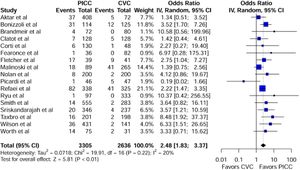The Municipal Forum 'Small Motherland - Strength of Russia' held recently in Great Novgorod gathered leaders from various municipalities across the country to focus on enhancing interaction between government bodies and citizens. Aimed at improving local governance and community engagement, the forum saw 250 municipal heads share their experiences and strategies affecting their jurisdictions.
The event took place on February 4, 2025, at the ITC 'Valdai' and was attended by significant figures, including Dmitry Karasev, the head of Norilsk, and Yuri Bobrychev, chairman of the Novgorod Regional Duma. According to Evgeny Grachev, Deputy Head of the Presidential Administration for Internal Policy, municipal communities are pivotal as they respond to citizens' urgent requests on a daily basis. He stated, "Municipal community responds daily to urgent requests from citizens, and such meetings facilitate the exchange of experiences and search for effective solutions." This underlines the essence of the forum — creating platforms for sharing best practices and innovative approaches to governance.
During the strategic discussions, various topics were on the table, focusing on enhancing public trust, improving communication channels, and boosting responsiveness to citizen inquiries. Dmitry Karasev highlighted the importance of receiving timely feedback from the population, particularly due to the remote and challenging nature of life in the Arctic regions. He stated, "Norilsk lives under complicated climatic conditions, and it's important to receive real-time feedback from the population." His comments echoed the broader need for transparent governance, where authorities remain accessible to residents, and their concerns are prioritized.
The agenda also included engagement with youth, with discussions revolving around ways to incorporate their perspectives and ideas within municipal frameworks. Karasev remarked, "Youth has a creative approach and fresh perspective to many problems, and our task is to listen to them." This remark emphasizes the necessity of involving younger demographics, acknowledging their potential to contribute innovative solutions for local governmental challenges.
A significant topic of discussion revolved around transportation issues, especially pertinent to regions like Norilsk, where severe winters and logistical challenges exist. Karasev elaborated on his administration's efforts to revamp transit systems, saying, "We aimed to revise the route network and repair priorities for road infrastructure." His administration has been focused on improving public transport to maintain effective connectivity for residents during extreme weather conditions.
The forum encouraged participants to share success stories and learn from one another, fostering collaboration aimed at finding practical solutions suited to the unique needs of different regions. The diversity of experiences presented at the forum, particularly from the Arctic areas, offered valuable insights for attendees to emulate or adapt to their respective municipalities.
Overall, the 'Small Motherland - Strength of Russia' forum illuminated several pressing issues faced by local governments, with collaboration sounding as the underlying theme. The exchange of innovative solutions for citizen engagement, youth involvement, and addressing logistic hurdles lay the groundwork for fostering resilient local governance. With such initiatives gaining momentum, hopes are high for the improvement of public trust and the effectiveness of interactions between citizens and their representatives.



